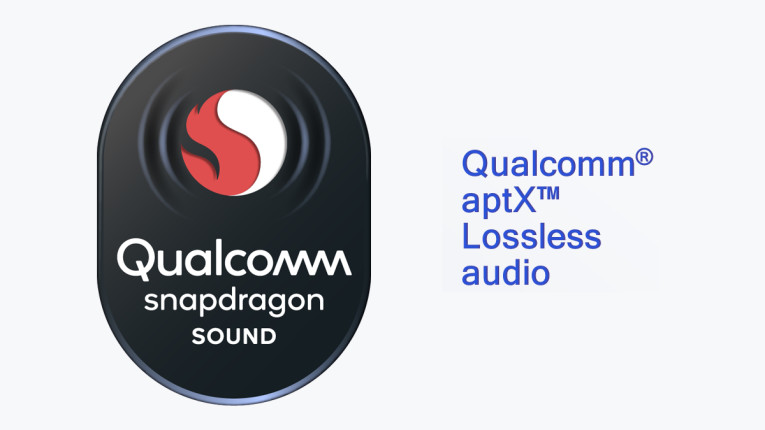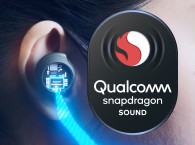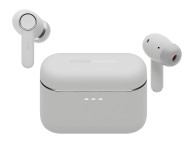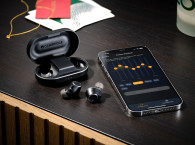
Given the delay in the latest Bluetooth audio updates that will enable a superior audio transmission solution, complementing the already announced LE Audio specification (yet to be ratified) and LC3 codec, the opportunity for proprietary solutions remains in place until a standards-based approach is available. Many audio companies, such as Sony, have used the "higher-quality" gap to introduce new codec flavors (LDAC) supporting high-resolution audio options over Bluetooth, always knowing that such solutions require support on both the source and destination (sink) devices.
These days, the Bluetooth link between a smartphone and true wireless earbuds is becoming a "last-mile" constraint, where proprietary approaches are becoming an appealing option given the lack of alternatives and the fast-moving market trends. Among the nearly 50% of smartphones in use that are not Apple iPhones, the vast majority of devices use Qualcomm processors, and now a large number of true wireless stereo designs are also based on Qualcomm chips, given that most audio manufacturers do not have the resources to develop their own custom-silicon platforms - as Apple does.
Given that the sales of Apple AirPod earbuds alone represents a greater business than most technology companies' overall revenue, Qualcomm announced their latest Snapdragon Sound platform to aggressively pursue that market. And given that most Android phones also use Snapdragon processors, this allows an ideal opportunity for Qualcomm to push aptX codecs throughout. Snapdragon Sound is the ideal vehicle to extend support for aptX Adaptive, a new hardware and software approach that allows optimizing the choice of codecs and transmission according to content format, device types and conditions.
As the current Bluetooth standard is not able to support the required bandwidth for uncompressed audio transmission, even of the lowest quality 16-bit/44.1kHz files generated from old CDs, using efficient compression schemes is the only option. The problem is, CD-quality is history, and any aspiring musicians recording in their bedrooms for the past 20 years have been recording and submitting 24-bit/96kHz files to streaming music services. Still decades of CD-quality masters are still stored in those servers and, in many cases, that is probably the best quality that music will ever be available, given that the original analog masters have been lost. The constraints of music streaming over different types of networks are another reason why those streaming services have been forced to create lower-tiers of distribution, and one of the available options is to stream in lower 16-bit quality (normally sampled at 44.1kHz for old CD material, and 48kHz for download-era originals).
Qualcomm offers aptX HD as its highest quality codec option for 24-bit/96kHz hi-res audio transmission, but given the current market hype around "lossless" streaming options, they could also remix the codec flavors to support "lossless CD quality 16-bit/44.1kHz" over Bluetooth, adding to the aptX Adaptive solution. At the same time, Snapdragon Sound allows the required source/sink optimizations to create a more robust experience. Again, something only possible using a proprietary approach where the technology is available and supported on both sides.

Making It Work
At an exclusive event in New York City, September 1, 2021, Qualcomm Technologies International promoted the rollout of its Snapdragon Sound technology, with 30 OEMs currently having signed technology agreements, and the first commercial products headed for consumers from large volume manufacturers Xiaomi and Edifier. The event was supported by NY-based lifestyle brand Master & Dynamic, where the first available source device - a reference smartphone designed by ASUS, labeled as "Smartphone for Snapdragon Insiders" - was also demonstrated.

At this event, Qualcomm announced its intention to support CD Lossless audio transmission over Bluetooth - offering a natural extension of the lossless streaming options being promoted to consumers who will never be able to tell the difference between hi-res audio compressed or CD-quality lossless. To better illustrate the current state of affairs in consumers minds, Qualcomm also revealed new findings from its annual State of Sound report, a global survey of 6,000 consumers.
“With Snapdragon Sound we’ve taken a new systems-level approach, looking at the complete audio chain from mobile to earbuds and introducing new ways to think about sound quality,” says James Chapman, vice president and general manager, Voice, Music and Wearables, Qualcomm Technologies International. “By optimizing across the entire audio chain, we can enable our customers to deliver ultra-low latency for gaming, crystal clear voice calls and high quality music listening, all with reliable and consistent connectivity to ensure seamless user experiences. The technology is designed to dynamically adapt to both the use case and external environment and provides our customers with a new way to deliver robust, high quality audio including bit-for-bit exact CD Lossless quality. Whatever you are doing across your devices, Snapdragon Sound is designed to deliver the ultimate audio experience, truly how sound should sound."
The 2021 State of Sound report confirms that consumers remain aware and interested in differentiating features including higher resolution and lossless music quality, low latency for gaming, better voice call quality, active noise cancellation and "glitch-free sound," which is another of saying making Bluetooth pairing anc connectivity more robust.
“The survey highlights the tremendous opportunity for our customers today, with increased consumer demand for lower-latency, higher quality audio and changes in the way in which we work, live and relax driving new and exciting use cases," adds Chapman.
To help deliver CD lossless audio quality reliably over Bluetooth wireless technology, aptX Adaptive works in conjunction with Qualcomm Bluetooth High Speed Link technology to help deliver the required sustainable data throughput. When both sides have Snapdragon Sound chips, the technologies deliver rates beyond 1Mbit/s and are able to smoothly scale down to 140kbits/s in congested RF environments to minimize any audio dropouts or glitches for a consistent and reliable listening experience. The solution is able to auto-detect and enable CD lossless audio when the source is lossless audio.

“Sound quality is the most critical purchase driver across all audio devices according to our 2021 State of Sound survey, which also shows increasing demand for higher quality streaming audio. Over half of respondents are seeking either lossless or high-resolution audio quality, and a massive 64% saying that lossless audio quality is likely to influence their decision to purchase wireless earbuds,” Chapman continued.
"There’s been increasing consumer interest and demand for lossless audio quality, which has been accelerated by Apple’s recent announcement that their entire music catalogue is now available in lossless. Many other streaming services, including Amazon Music, also support lossless. What’s important to point out is that Bluetooth technology wasn’t designed to support lossless audio; it simply doesn’t have the data throughput required. To deliver CD lossless quality over Bluetooth technology we took a systems level approach and optimized a number of our core audio and Bluetooth technologies to work together better and enable aptX to scale to deliver CD lossless quality for real-world use cases. This integrated approach requires aptX Adaptive, which is a variable bit rate codec, working in conjunction with Qualcomm High Speed Link technology that helps deliver bit-rates of over 1Mbit/s. These technologies work seamlessly together (and without any input from the user) to scale up and down to provide bit-perfect lossless audio when RF conditions are optimal in congested RF environments to minimize glitching," he details.
Download the 2021 State of Sound report here.
A Qualcomm-sponsored whitepaper explaining more of the technology behind aptX Lossless is available here.
www.qualcomm.com








